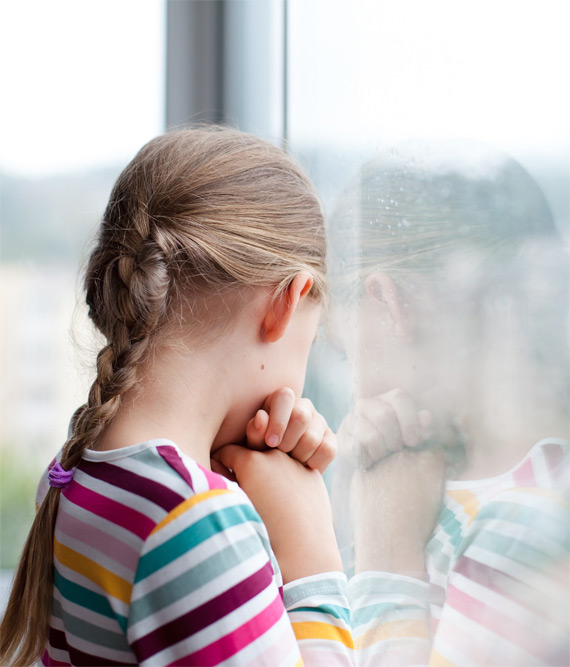
Recently, you may have noticed your child's physical reactions to anxious feelings such as headaches, unexplained stomach aches, chewing on hair or nails, and sleeplessness.
Kids with worries ask many questions, seek reassurance constantly, and avoid uncomfortable things. Kids with anxiety and OCD avoid stuff like sleeping in their beds, germs, bugs, social gatherings, and more.
Unfortunately, avoidance, while a temporary relief, makes the anxiety worse over time.
It feels like your child has many fears and obstacles.
I treat children with separation anxiety, fears, selective mutism, phobias, social anxiety, excessive shyness, OCD, nightmares, sleep fears, and frequent worries.
No matter the anxiety issue, missing school, repetitive behaviors, obsession, or compulsions, I can help. I'm a play therapist and a sand tray therapist, so it will even be fun! Play therapists believe that a child's first language is play, and it's how they communicate when words are hard.
You want your child to enjoy their childhood and get a good night's sleep, too! That's where I come in! I offer a free 10-minute phone consultation to help answer any questions! 517.258.1615 The very first session will just be you and I. We will go over the background information, you can ask me some questions, and I will explain a little bit about some evidence-based practices that help kids with OCD and anxiety.
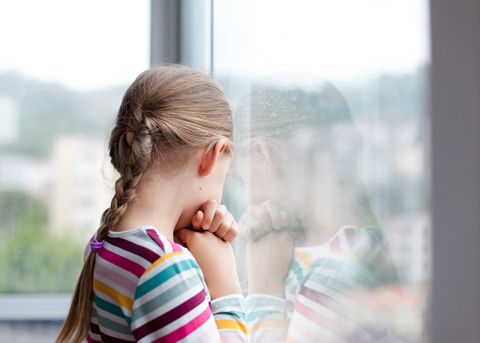
Your child has survived an upsetting life experience or a trauma if you are reading this section of my website.
You are worried because your child:
• Is unable or unwilling to recall details
• Has trouble stopping thoughts about the trauma
• Is fidgeting or having trouble sitting still since • the upsetting event
• Is experiencing low self-esteem
• Has trouble concentrating
• Has rapid changes in mood
• Sleeping routine is disturbed (not wanting to sleep alone, nightmares, waking up in the middle of the night)
I am a Registered Play Therapist. Kids communicate through play. The play therapy room and the sand tray room help them express themselves when words are hard, and feelings are overwhelming. I am Nationally Certified in Trauma-Focused Cognitive Behavioral Therapy and am also trained in EMDR.
Both are wonderful modalities to help your child work through tough life experiences.
Of course, with any trauma treatment, one of the most important foundations is building coping skills to help them when trauma reminders arise. We will do this first since it gives kids an opportunity to build a therapeutic relationship with me before we dive into trauma processing.
In our first session, I will meet just with parents or guardians to go over all the background information, tell you about treatment, and set goals!
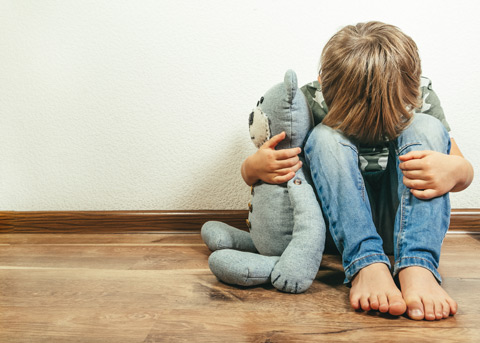
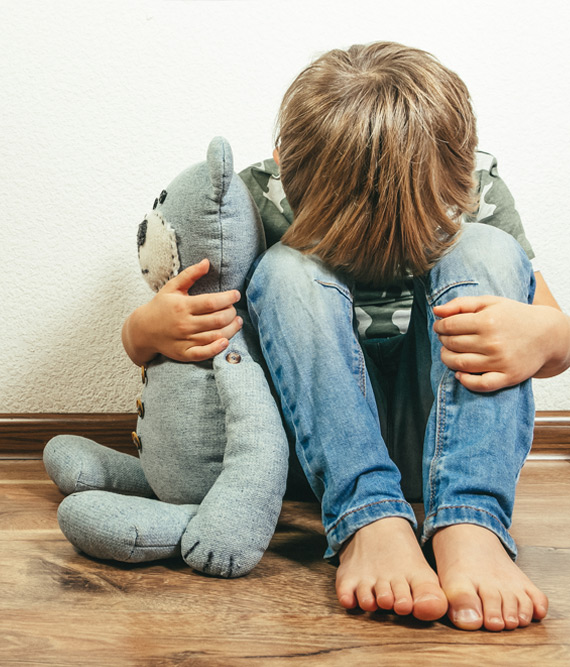

Sometimes things don’t feel okay. Worry thoughts may fill your mind. Your brain replays conversations with friends and you over analyzing things people said in your DM’s. Other times you may feel nervous before tests or speaking in class. Often teens with anxiety will try hard to get good grades and avoid making mistakes. Which can lead to utter exhaustion.
Anxiety affects everyone differently. I have experience helping teens with perfectionism, social anxiety, obsessive-compulsive disorder, excessive shyness, separation anxiety, fears, phobias, and worries.
Our goal won’t be to rid your life of anxiety or to change your unique personality. But to help you have a plan to live with anxiety and to find joy on your journey. This will involve some hard work and some exposure therapy. Avoiding things that make us anxious, which can help temporarily, will keep you from doing the things you want to do, and make anxiety last a long time. We’ll also address self-care, self-love, coping skills, and finally your thoughts. The things your brain says about your fears, yeah that’s making it worse also. We need to come up with a plan to quiet some of the noise in your head.

If you are looking for help working through an upsetting life experience, I can help. TF-CBT is a therapeutic modality to that helps children and teens overcome the impact of traumatic experiences. If you have trouble concentrating, feel numb, have difficulty stopping trauma thoughts and trouble sleeping TF-CBT helps you work through those memories. Some teens even experience anxiety and mood changes. Of course, these things can bug you during school and even when you are trying to hang out with friends. At your first session I will tell you a little bit more about the program. But I promise you it starts easy, we start with learning and practicing coping skill to help you when you have an upsetting memory. And when you are ready, we start something called Trauma Processing.
I’m also trained in a type of therapy called EMDR. But again, EMDR the first couple sessions are learning some relaxation skills or what EMDR calls resourcing skills.

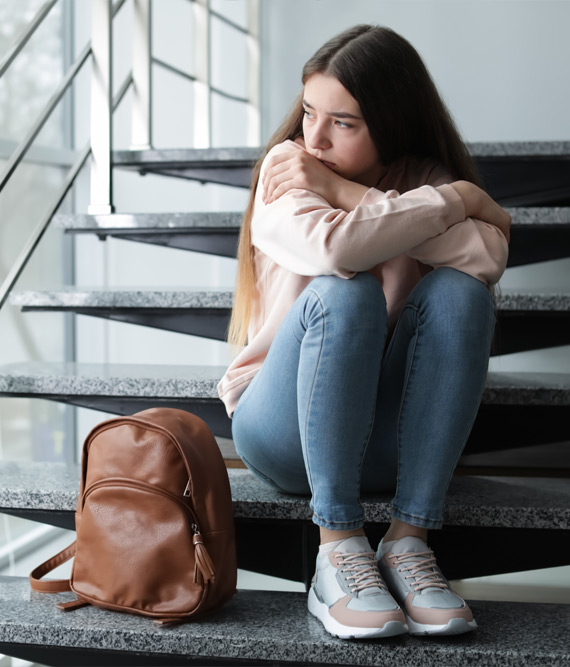
Is a play therapy treatment for children ages 4 to 10. CCPT can be effective with behavioral issues, grief, trauma, anxiety, depression, and academic and social impairments. To read more about client centered play therapy visit my blog page here: Child-Centered Play Therapy.
CBT is a brief-time limited therapy typically used with adolescents and adults; however, children can be taught aspects of CBT. CBT is appropriate for ages 8 and up! Identifies thoughts that contribute to anxiety and depression and teaches clients to replace those unhelpful thoughts. Through CBT I also teach client’s relaxation techniques such as meditation and we discuss increasing mindfulness. CBT most typically treats anxiety and depression. But can also be used to treat phobias, anger issues, mood issues, disordered eating, and much more! Let me know if I can help!
I am nationally certified in TF-CBT. TF-CBT is an evidenced based treatment for all types of trauma. I use TF-CBT for children ages 7-18. If your child or teen has been a victim of sexual abuse, physical abuse, or has witnessed or experienced a traumatic event this treatment may be for them. I have a parent hand-out I would give you at the first session that explains the TF-CBT program and goals. But to read more about if TF-CBT is right for your child please read this blog article: Trauma-Focused Cognitive Behavioral Therapy.
ERP encourages the confrontation of feared stimuli. It can be external (heights, spiders, messiness), or internal (racing heart, sweating, The goal is to reduce the person’s reaction to the stimulus. In ERP treatment we learn to tolerate uncertainty, to tolerate anxiety, and to not engage in avoidance behavior. Avoidance behavior may decrease anxiety in the short term but is not a long term solution. In ERP people will feel anxious at first, but slowly they learn that the feared situation does not lead to the feared consequence.
EMDR is a form of psychotherapy. It can help clients heal from trauma or other distressing life events. It can be used with children, teenagers, and adults. Here is an article that explains some more about EMDR; however, we can discuss this at your first session to see if this treatment is right for you! Find out more information about Eye Movement Desensitization and Reprocessing here.
Play Therapists believe children learn through play and it is their first language! I am a Registered Play Therapist and want our therapy sessions to be fun! I offer a wide variety of play therapy opportunities. I have a full sand tray set-up. I also offer Client-Centered Play Therapy. Even older kids who may just want to talk can sit and play with the kinetic sand or playdoh while they talk. At times I will have parents who seek out EMDR or TF-CBT for their children, and I incorporate some playful activities into those sessions as well!